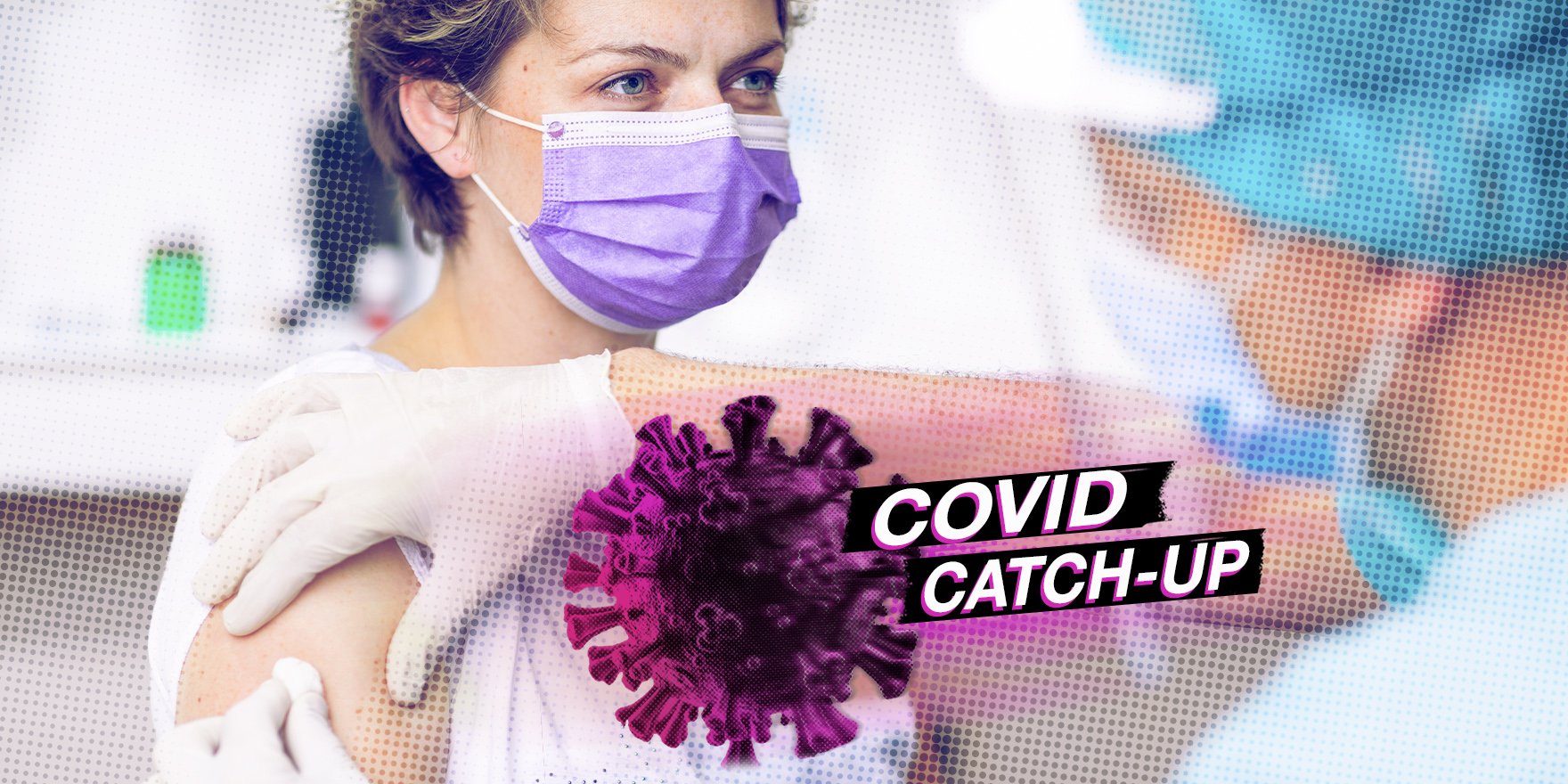The mRNA vaccine appears to have even higher efficacy for the secondary endpoint of preventing severe COVID-19.
Welcome to The Medical Republic’s COVID Catch-Up.
It’s the day’s COVID-19 news in one convenient post. Email bianca@biancanogrady.com with any tips, comments or feedback.
1 December
- Moderna press release results suggest 94% efficacy of its mRNA-based COVID-19 vaccine.
- Testing of blood donations suggests SARS-CoV-2 present in the US in mid-December 2019.
- Australia has ordered enough vaccine to cover 88% of the population.
- Fiji achieves 200 days without a single community case of COVID-19.
- Latest confirmed COVID-19 infection numbers from around Australia.
- Moderna has press-released the primary efficacy results of its mRNA COVID-19 vaccine, which suggest the vaccine has 94% efficacy in preventing COVID-19 and even higher efficacy for the secondary endpoint of preventing severe COVID-19.
The results, which have yet to be released in full or peer-reviewed, are from the phase 3 COVE study involving more than 30,000 participants, who were randomised either to two doses of the mRNA vaccine or placebo
A total of 196 cases of COVID-19 were recorded, 185 of which occurred in the placebo group. All 30 cases of severe COVID-19 occurred in the placebo group, including one fatality.
Moderna’s press release stated that vaccine efficacy was consistent across ages, ethnicities and genders. Around 40% of study participants were considered medically high-risk for COVID-19, and 37% were from Black, Asian or minority ethnic backgrounds. - Serological testing of pre-pandemic blood donations from the United States suggest the virus may have been present more than one month before the first official case was reported.
A study published in Clinical Infectious Diseases analysed nearly 7400 routine blood donations collected across nine US states between 13 December 2019 and 15 January 2020.
A total of 106 samples (1.4%) tested positive for SARS-CoV-2 antibodies of any kind. Of the 90 samples that were then available for further serology, around 43% showed two different antibodies to the SARS-CoV-2 spike protein, and 23 of the samples showed neutralising activity.
The earliest samples were from the 13-16 December 2019, from California, Oregon and Washington, but the first official case of COVID-19 wasn’t reported until 19 January 2020.
“The presence of these serum antibodies indicate that isolated SARS-CoV-2 infections may have occurred in the western portion of the United States earlier than previously recognized or that a small portion of the population may have pre-existing antibodies that bind SARS-CoV-2 S,” the authors wrote.
They noted that previous studies have suggested the possibility of cross-reactivity with antibodies to a small number of other coronaviruses, which can target the spike protein. However they said findings from this study still indicate that at least some of the serological results could come from exposure to SARS-CoV-2. - Australia has the ninth-highest volume of pre-ordered vaccine doses and, if all three COVID-19 vaccine pre-orders are filled, will be able to vaccinate nearly 88% of the entire population.
A report on the World Economic Forum website has revealed how many vaccine doses have been pre-ordered by various nations, and what coverage this represents. The European Union and United States have each ordered around 700 million doses of COVID-19 vaccine from Moderna, Pfizer/BioNTech, or AstraZeneca/Oxford. India has reserved 500 million doses of the Oxford vaccine, the UK has ordered a total of 145 million doses of all three vaccines, and Australia has pre-purchased 10 million doses of the Pfizer/BioNTech vaccine and 33.8 million of the AstraZeneca/Oxford vaccine.
With some countries’ total vaccine orders exceeding their population head count, the report warned that unequal distribution of the vaccines could potentially lead to more deaths than if the vaccine were distributed evenly. - While Victorians celebrate more than a month without a single case of community transmission of COVID-19, Fiji has hit the even more spectacular milestone of 200 days with no community transmission.
According to a report in the WHO’s weekly operational update, Fiji’s success in controlling spread of the virus is partly due to its decision to validate and implement local testing early in the pandemic. They also implemented compulsory 14-day quarantine for returning travellers. - Australia’s death toll from COVID-19 has sadly risen by one, after a Victorian woman in her 70s died from complications following infection with SARS-CoV-2 in late July. While the woman had since cleared the virus and had two negative swabs, the fact that her death was related to complications from the initial infection meant it was classified as a COVID-19 death.
Here are the latest confirmed COVID-19 infection figures from around Australia to 9pm Monday:
National – 27,904 with 908 deaths
ACT – 117 (0)
NSW – 4577 (9)
NT – 53 (1)
QLD – 1202 (1)
SA – 562 (0)
TAS – 230 (0)
VIC – 20,345 (0)
WA – 818 (0)



